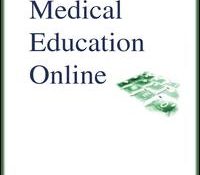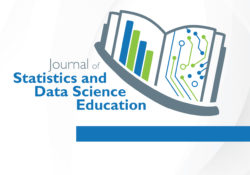eric.ed.gov har udgivet: This report describes the federally funded development and field testing of a math drill and practice computer software program for students with mild disabilities. Program features include: pre-assessment of pupil speed and accuracy, automatic placement of the pupil in appropriate problems for practice, automatic monitoring of pupil performance, and automatic adjustment of practice problems. Field testing was undertaken with junior and senior high students with learning disabilities as well as with grade 4-5 students without disabilities. A user’s manual included with the report offers a quick reference to basic operations of the program, detailed information regarding each program component and associated decision-making algorithms, and a glossary of terms. A teacher’s handbook provides guidelines for applying drill and practice in special and remedial math instruction, explains the theoretical… Continue Reading →
Like this:
Like Loading...
eric.ed.gov har udgivet: The use of PLATO (registered) elementary school software in Fairview Elementary School, Dayton, Ohio, was studied. PLATO software had been used in Title I mathematics classes for the last 3 years. The Title I teacher used PLATO software as an integral part of her class instructional strategy. Mathematics achievement data were analyzed for 88 Title I students over the 3 school years. Pretest and posttest mathematics scores were obtained for the Ohio State Performance test in mathematics and for parallel mathematics tests. Four percent of the Title I students scored at the proficient level on the fourth grade mathematics pretest. By the end of the year, 24% of the students were proficient in mathematics, representing a large and educationally meaningful gain in performance. Students at the lower… Continue Reading →
Like this:
Like Loading...
eric.ed.gov har udgivet: The teaching of Mathematics in the context of the Mathematical Olympiads in Brazil constitutes a context of research still little considered, with particular interest in the teaching and the learning phenomena. In Brazil, we identified a large number of teachers and students who do not participate in official math competitions, such as the Brazilian Olympiads of Mathematics of Public Schools (OBMEP). On the other hand, it is important to implement didactic resources that allow other forms of didactic transposition to the mathematical knowledge addressed for the Olympic Problems (OP). In this way, the present work presents and introduces the notion of Olympic Didactical Situation (ODS), from a perspective of didactic transposition necessary for the teacher, who must transmit the mathematical knowledge characteristic of the Mathematical Olympiads to… Continue Reading →
Like this:
Like Loading...
tandfonline.com har udgivet en rapport under søgningen “Teacher Education Mathematics”: Link til kilde
Like this:
Like Loading...
tandfonline.com har udgivet en rapport under søgningen “Teacher Education Mathematics”: Link til kilde
Like this:
Like Loading...
tandfonline.com har udgivet en rapport under søgningen “Teacher Education Mathematics”: ABSTRACT ABSTRACT Academics often develop software for teaching and learning purposes with the best of intentions, only to be disappointed by the low acceptance rate of the software by their students once it is implemented. In this study, the focus is on software that was designed to enable veterinary students to record their clinical skills. A pilot of the software clearly showed that the program had not been received as well as had been anticipated, and therefore the researchers used a group interview and a questionnaire with closed-ended and open-ended questions to obtain the students’ feedback. The open-ended questions were analysed with conceptual content analysis, and themes were identified. Students made valuable suggestions about what they regarded as important considerations… Continue Reading →
Like this:
Like Loading...
eric.ed.gov har udgivet: Technology has gained a firm stronghold in society as well as modern classroom. Students are assumed to have a natural aptitude for computers. Over the past decades, educational websites have appeared to be “interactive” and “to make learning fun”. This study employed quantitative method of research using 8th grade instructors from South East Dallas Texas school district. Data was collected via Microsoft Excel and SPSS computation. The survey instrument tested for internal consistency and reliability. The seven Likert scale items tested nine variables for Pearson correlation. A t-test detected non-significance at the p > 0.05 level of probability indicating that male teachers seldom use technology to teach math than their female colleagues. A second t-test showed a significant difference at p < 0.05 level for difference between… Continue Reading →
Like this:
Like Loading...
tandfonline.com har udgivet en rapport under søgningen “Teacher Education Mathematics”: Abstract Formulae display:?Mathematical formulae have been encoded as MathML and are displayed in this HTML version using MathJax in order to improve their display. Uncheck the box to turn MathJax off. This feature requires Javascript. Click on a formula to zoom. Abstract Traditionally, statistical computing courses have taught the syntax of a particular programming language or specific statistical computation methods. Since the publication of Nolan and Temple Lang [2010], we have seen a greater emphasis on data wrangling, reproducible research, and visualization. This shift better prepares students for careers working with complex datasets and producing analyses for multiple audiences. But, we argue, statisticians are now often called upon to develop statistical software, not just analyses, such as R packages implementing new analysis… Continue Reading →
Like this:
Like Loading...

tandfonline.com har udgivet en rapport under søgningen “Teacher Education Mathematics”: ABSTRACT ABSTRACT There is growing awareness of the need for mathematics and computing to quantitatively understand the complex dynamics and feedbacks in the life sciences. Although several institutions and research groups are conducting pioneering multidisciplinary research, communication and education across fields remain a bottleneck. The opportunity is ripe for using education research-supported mechanisms of cross-disciplinary training at the intersection of mathematics, computation, and biology. This case study uses the computational apprenticeship theoretical framework to describe the efforts of a computational biology lab to rapidly prototype, test, and refine a mentorship infrastructure for undergraduate research experiences. We describe the challenges, benefits, and lessons learned, as well as the utility of the computational apprenticeship framework in supporting computational/math students learning and contributing… Continue Reading →
Like this:
Like Loading...




